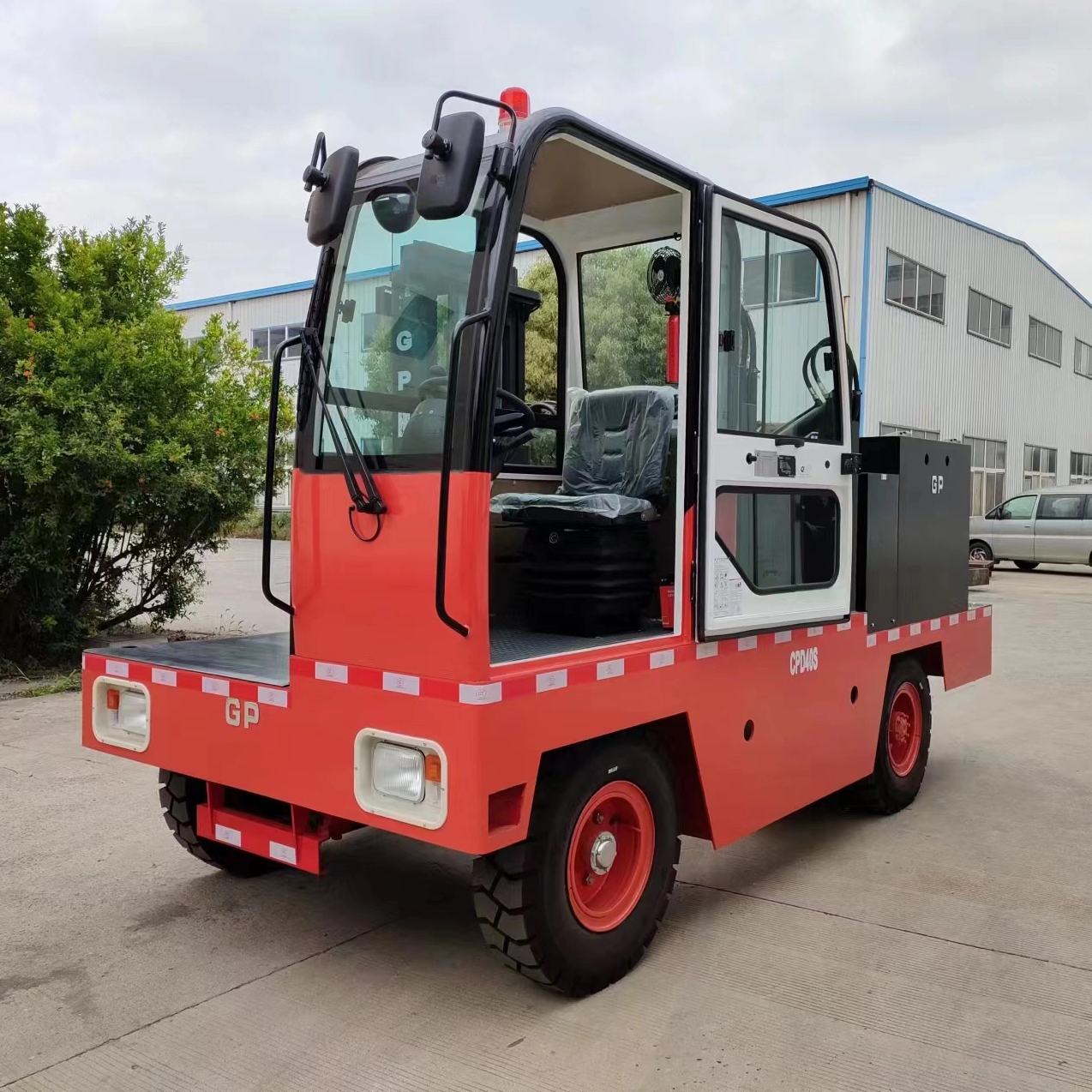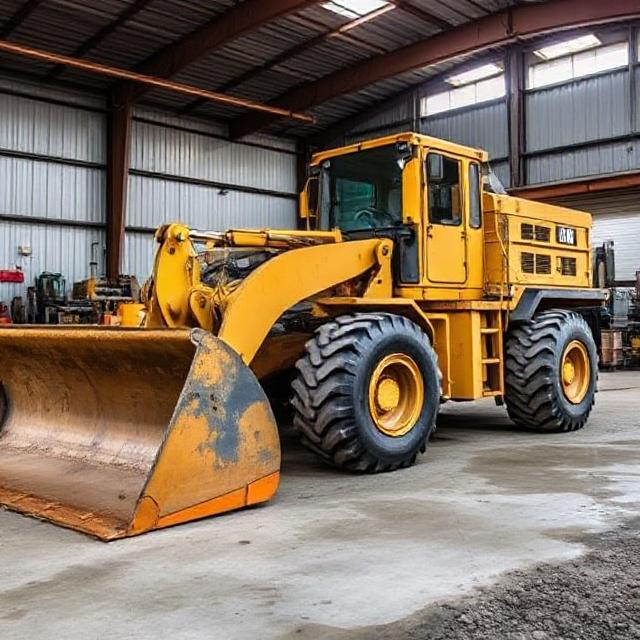
Introduction
Excavation equipmentis a vital part of construction projects. But are you getting the most out of your machinery? Maximizing efficiency can save time and reduce costs.
In this post, we’ll share practical tips to boost your equipment’s performance. You’ll learn strategies to keep your machines running smoothly and get the job done faster.

Why Maximizing Excavation Equipment Efficiency Matters
Understanding Excavation Equipment in Construction
Excavation equipmentplays a crucial role in construction projects. It includes machines like backhoe loaders, bulldozers, hydraulic excavators, and skid steer loaders. These machines handle essential tasks like digging, trenching, material handling, and demolition.
Construction companies rely on these machines for efficient and precise operations. Without them, tasks like trenching for utilities or grading a road would take much longer and require more manual labor.
Impact on Project Timelines and Costs
Efficient use of excavation equipment can significantly speed up project timelines. Properly maintained machines perform tasks faster and more accurately. This reduces the need for rework and prevents costly delays.
When equipment works optimally, it can handle more tasks without breaking down. This lowers labor costs and minimizes downtime, helping keep projects on budget and on schedule. A small investment in efficiency can lead to major savings in both time and money.
Types of Excavation Equipment You Should Maximize Efficiency For
Backhoe Loaders
Backhoe loaders are versatile machines. They excel in digging, trenching, and material handling. Their compact size makes them ideal for tight spaces, especially in urban construction projects.
To get the most out of a backhoe loader, multitask when possible. You can dig, load, and backfill all with the same machine. Regular maintenance is key, too. Keep it well-maintained to prevent breakdowns and ensure smooth operations.
Bulldozers
Bulldozers are powerful machines designed for earth-moving, grading, and leveling tasks. Their strength makes them ideal for moving large quantities of soil or debris.
To improve bulldozer efficiency, choose the right blade type. A straight blade is great for fine grading, while a universal blade works best for pushing heavy material. In road construction, bulldozers are crucial for leveling surfaces and clearing land.
Hydraulic Excavators
Hydraulic excavators are known for their versatility and power. They can dig, lift, and handle heavy materials with precision. These machines are often used for tasks like trenching, demolition, and material handling.
To maximize their efficiency, operators should focus on precision. Hydraulic excavators are essential for large infrastructure projects like bridges and roads, where accuracy is critical.
Skid Steer Loaders and Other Compact Machinery
Skid steer loaders are small but mighty. They work well in confined spaces and are ideal for smaller job sites. These loaders can quickly switch between tasks thanks to their wide range of attachments.
To maximize productivity, use these machines to handle various tasks like digging, lifting, and demolition. Their ability to maneuver in tight spots is a huge advantage when space is limited.
Dump Trucks and Motor Graders
Dump trucks are vital for transporting materials quickly and efficiently. They can handle everything from dirt to debris, helping to keep job sites organized and running smoothly.
Motor graders, on the other hand, are perfect for precise grading and leveling. They ensure smooth, even surfaces, essential for roads and other infrastructure projects. These machines play a key role in maintaining job site logistics and boosting overall efficiency.
Key Strategies to Maximize Excavation Equipment Efficiency
Regular Maintenance and Pre-operation Checks
Before starting the equipment, always perform a thorough inspection. Check the oil, hydraulic systems, and safety features. These quick checks can prevent unexpected breakdowns.
Routine maintenance is crucial to keep your machines running smoothly. Scheduling regular services helps avoid downtime and keeps the equipment in top condition. Clean and lubricate key parts to ensure everything works properly. These small steps will prevent delays and keep your team safe on the job site:contentReference[oaicite:0]{index=0}.
Optimizing Equipment Usage on the Job Site
Proper Planning and Scheduling
Planning ahead is key to using equipment efficiently. By scheduling tasks and assigning the right equipment at the right time, you can reduce idle time.
Streamline operations by assigning machines for specific tasks, like backfilling or trenching. This way, equipment stays busy and the project moves forward smoothly .
Training Operators for Maximum Productivity
Well-trained operators make a huge difference in efficiency. Investing in operator training ensures that machines are used properly and safely.
Experienced operators can handle complex tasks without making costly errors. By improving their skills, you can increase productivity and reduce accidents .
Utilizing the Right Equipment for Specific Tasks
Choosing the right equipment for the job is essential. For example, using a backhoe loader for digging foundations or trenching for utilities is much more efficient than using a larger machine.
Using the wrong equipment can slow down work, increase fuel consumption, and cause delays. Always match equipment size and type to the task at hand .
Proper Job Site Layout and Equipment Positioning
A good job site layout can make a big difference. Strategically position equipment to reduce travel time. This simple step saves both time and energy.
Also, organize material delivery and debris removal processes. The better the layout, the less downtime you’ll experience, and the more efficient the project will be .
Reducing Equipment Downtime: Best Practices
Using Telematics and GPS to Monitor Equipment Performance
Telematics and GPS technology can revolutionize how you manage your equipment. These tools track machine performance and predict when maintenance is needed.
Real-time monitoring helps identify potential issues early, preventing unexpected breakdowns. By keeping an eye on your equipment’s health, you can plan repairs before they become major problems .
Preventing Common Equipment Failures
Common causes of equipment failure include overheating and hydraulic system issues. Regularly checking fluid levels, cooling systems, and hydraulic components can prevent many of these problems.
Proactive measures like replacing worn-out parts and ensuring regular maintenance can extend your equipment’s lifespan. Small fixes early on reduce downtime and save costly repairs in the long run.
Importance of Scheduled Downtime for Repairs and Servicing
It might seem counterintuitive, but scheduled downtime for repairs is crucial. Taking time for regular servicing keeps equipment running at its best. By planning ahead, you can avoid unscheduled stops that disrupt your workflow.
Investing in maintenance ensures smoother operations and reduces the risk of unexpected failures, helping your equipment stay productive.
Safety Measures to Ensure Equipment Efficiency
Safety Protocols for Operators
Safety practices are crucial for the smooth operation of excavation equipment. Operators should always wear the proper protective gear, such as hard hats, steel-toed boots, and high-visibility clothing. These precautions help prevent injuries and ensure a safer work environment.
Clear communication on-site is also vital. By keeping in touch with the team, operators can avoid accidents and equipment misuse. Having regular safety meetings ensures that everyone knows the risks and how to manage them .
Equipment-Specific Safety Tips
Different machines require specific safety procedures. For example, when operating backhoes, always check for loose parts or debris before starting. Bulldozer operators should be aware of their surroundings and avoid sudden movements that could damage the site or the machine. Excavators require extra attention to hydraulic systems and must be operated with caution, especially when lifting heavy loads.
Before using any equipment, conduct thorough safety inspections. Identify potential hazards like uneven ground or unstable structures. Taking these precautions reduces the chances of equipment failure and keeps the team safe .
Technology and Tools to Boost Equipment Efficiency
Adopting Smart Technologies for Excavation Equipment
Modern excavation equipment is getting smarter. Excavators and bulldozers now come with GPS and automation features, which help improve efficiency. These technologies guide operators to work faster, with greater accuracy, and reduce human error.
Software tools are also playing a key role. They track productivity and help plan tasks more effectively. By using these tools, operators can optimize excavation speeds and reduce the need for manual labor, making the entire process smoother and quicker .
Integration of Drones and Telematics for Equipment Monitoring
Drones are becoming an essential tool on construction sites. They can monitor job sites, check progress, and track equipment usage from above. This provides real-time data that helps keep things on track.
Telematics technology takes it a step further by analyzing equipment performance and predicting maintenance needs. This predictive maintenance reduces the risk of breakdowns, as issues are spotted before they cause delays .
Common Mistakes That Hurt Excavation Equipment Efficiency
Overloading Machinery
Overloading machinery can severely impact its efficiency. It puts extra stress on the engine, reduces the lifespan, and increases fuel consumption. When machines are overloaded, they work harder than needed, leading to faster wear and tear.
For example, trying to move too much material at once can slow down operations and result in more fuel usage. Overloading also causes unnecessary damage, which can lead to costly repairs down the road .
Underusing Equipment or Letting It Sit Idle
On the flip side, not using equipment to its full potential also hurts efficiency. When machines sit idle, they’re not contributing to the project and are wasting valuable resources. It’s important to strike a balance: using the equipment as needed while avoiding overuse to prevent unnecessary wear and tear.
Letting equipment sit unused also means missed opportunities to complete tasks quickly, which can delay the overall project.
Neglecting Routine Maintenance and Cleaning
Skipping regular maintenance is a common mistake that leads to long-term problems. Failing to perform daily or weekly checks on machinery can result in breakdowns that slow down the entire project.
Cleaning machines and inspecting key parts (like hydraulics and engines) helps ensure they run smoothly. Neglecting this maintenance often leads to costly repairs and downtime .
Conclusion: How to Achieve Peak Efficiency with Excavation Equipment
To maximize efficiency, focus on regular maintenance, planning, and using the right equipment for each task.
Maximizing efficiency leads to cost savings, faster project completion, and smoother operations.
Start applying these strategies today to boost your equipment's performance and ensure long-term success on the job site.
FAQs (Frequently Asked Questions)
Q: What are the top strategies to improve excavation equipment efficiency?
A: Key strategies include regular maintenance, proper planning, using the right equipment for the job, and training operators to maximize productivity.
Q: How often should excavation equipment be serviced?
A: Service schedules vary by equipment type. Typically, perform basic checks daily and more detailed servicing at regular intervals, such as every 250-500 hours of use.
Q: Can excavation equipment be used for tasks beyond digging and trenching?
A: Yes, excavation equipment can also be used for demolition, material handling, landscaping, and other tasks depending on the machine's versatility.
Q: How do I avoid costly repairs on my excavation equipment?
A: Preventive measures like regular maintenance, proper inspections, and timely repairs help avoid costly breakdowns and extend the life of the equipment.

 English
English









